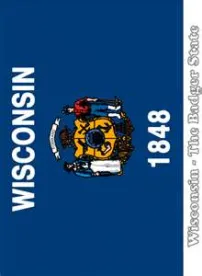In Phillips v. Parmelee, 2013 WI 105 (Dec. 27, 2013), the Wisconsin Supreme Court upheld the validity of a broad asbestos exclusion.
In 2006, Daniel Parmelee and Aquila Group ("Sellers") sold an apartment building to Michael Phillips, Perry Petta and Walkers Point Marble Arcade, Inc. ("Buyers") covered by an American Family business owners policy. Prior to selling the building to Buyers, Sellers received a property inspection report noting the probable presence of asbestos. However, Buyers claimed Sellers never put them on notice that the property probably contained asbestos and eventually filed suit.
The trial court granted American Family's motion for declaratory judgment due to the policy's broadly worded asbestos exclusion. The court of appeals upheld the trial court's decision.
The asbestos exclusion at issue stated as follows:
This language does not apply to … "property damage" … with respect to:
a. Any loss arising out of, resulting from, caused by, or contributed to in whole or in part by asbestos, exposure to asbestos, or the use of asbestos. "Property damage" also includes any claim for reduction in value of real estate or personal property due to its contamination with asbestos in any form at any time.
b. Any loss, cost, or expense arising out of or in any way related to any request, demand, order, or statutory or regulatory requirement that any insured or others identify, sample, test for, detect, monitor, clean up, remove, contain, treat, detoxify, neutralize, abate, dispose of, mitigate, destroy, or any way respond to or assess the presence of, or the effects of, asbestos.
….
f. Any supervision, instructions, recommendations, warnings or advice given or which should have been given in connection with any of the paragraphs above.
The only issue presented to the Wisconsin Supreme Court was whether the asbestos exclusion in the American Family policy precluded coverage for the losses claimed by Buyers.
First, Buyers argued the term "asbestos" is ambiguous because it is undefined in the American Family policy and there are various forms and meanings of "asbestos." The court was unpersuaded and found a reasonable person reading the policy would understand the word "asbestos" to mean any form of asbestos.
Buyers then argued the broad language of the asbestos exclusion invites multiple reasonable interpretations and it should be narrowly construed against American Family. The court found the case law cited by Buyers in support of their position to be factually distinguishable because the exclusion language in that policy was materially different from the broad, comprehensive language in the American Family policy, which included a wider range of asbestos-related losses than the case law cited by Buyers.
Finally, Buyers asserted that the Sellers negligently failed to disclose defective conditions or any other toxic or hazardous substances contained on the property. However, the court found nothing in the record to demonstrate the Buyers sustained any loss related to electrical or plumbing issues. Rather, the loss arose from asbestos.
For the aforementioned reasons, the Wisconsin Supreme Court upheld the court of appeals' decision giving force to American Family's broadly worded asbestos exclusion.




 />i
/>i
